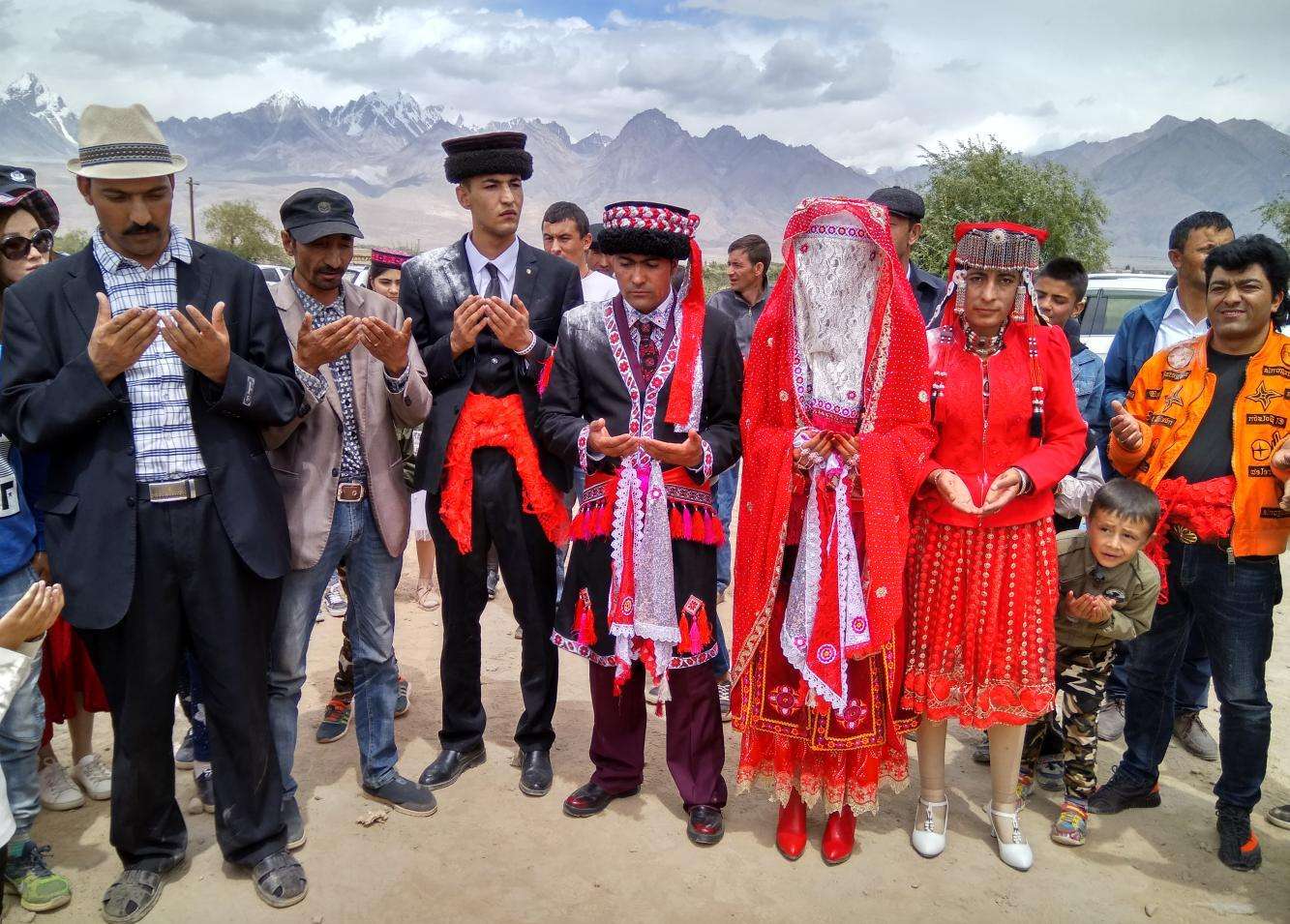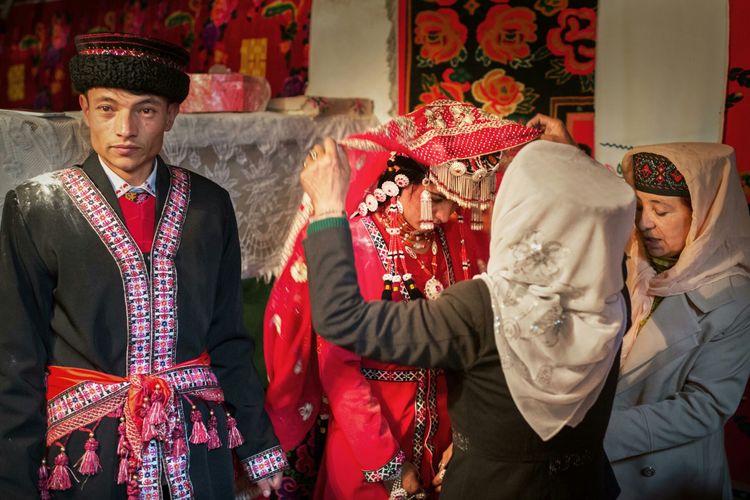As one of the essential nations in Xinjiang. The Tajik people are one of the 56 official ethnic groups in China that primarily reside in Xinjiang. they have their own Autonomous County - Tashkurgan. This is near the borders of Tajikistan, Pakistan, and Afghanistan. Their nomadic population of about 40,000 is majority Muslim. Most Tajiks in Xinjiang speak the Sarikoli language.
Introduction:
Culture is the source of identity through which people make sense of their place in the world. With globalization and increasing mobility, ethnic cultures are facing unprecedented challenges to survive. Many are trying to integrate with modern society while seeking to preserve their own identity, just like the traditional wedding cultures of the Tajiks in Xinjiang.
Traditional and Modern wedding customs:
Weddings are a big holiday among the Tajiks here in Xinjiang. Traditionally, both the bride and groom need to stay at home at least 3 days before the wedding.
Today, many young people are lucky enough to have love in their marriage. Now they have to maintain a balance between work and marriage, but some traditional customs still follow the older rules.
Traditional Tajik marriage celebrations:
The grand traditional Tajik marriage celebrations reflect the ethnic group's distinctive features and represent a unique wedding culture in China.
The traditional Tajik wedding lasts for seven days. The first day can be considered the "prologue" to the wedding ceremony. That day, both the bride and groom stay in bed in their parents' homes.
The bride covers her face with a veil during the first three days of the wedding until the imam or the chief witness at the ceremony opens her veil in public.
A wedding is a holiday for the whole village. Guests sing and dance to celebrate the happy occasion, and the families feed the guests stewed mutton, beef and other delicious foods.
Their parents, meanwhile, keep busy entertaining the guests, most of whom offer the families various presents, such as crusty pancakes (staple food of the Tajiks), clothes, jewellery and sheep.
Like other nations wedding: all relatives plus friends are invited to the wedding ceremony.

Kissing ceremony:
Kissing is an everyday occurrence for the Tajik people. When they kiss each other, Tajiks follow established rules: Males and females of different seniority in the family kiss each other on different parts of the body.
For example, when a middle-aged man meets an elderly person, they kiss the back of the hands of each other. If the women are from the same generation, they kiss each others forehead or lips.
The sacred duties for parents
Witnessing the course of their children's marriage is a sacred duty for parents in Tashkurgan Tajik Autonomous County in northwest China's Xinjiang Uygur Autonomous Region. And most Tajik couples here remain devoted to each other until the end of their lives.

Preparations and Wedding costumes
Since early morning, preparations for the bride and groom's big day have been in full swing. People are bustling around, decked out in traditional clothes in bright colours. White represents growing old together, while red symbolizes a happy life.
The bride wears a red-and-white handkerchief - which signifies happiness and good luck - around her wrist. The groom wears a hat decorated with cloth in the same colours.
Marriage ceremony:
During the wedding, the groom will ride a strong horse to pick up his bride. The groom's family then presents gifts to the bride's family, before the Imam chants the scriptures.
The bride and groom drink water from the same cup. The groom kisses the hands of his parents-in-law, to express his respect for and gratitude to them.
The bride then kisses her parents goodbye, to express her gratitude for their loving care. Finally, the couple leaves the bride's home.
The impact of urbanization:
Urbanization is fast spreading across Xinjiang, even to the remote villages in Tashkurgan and it has the potential to have a grave impact on people's lifestyles here.
Young Tajiks today have a variety of choices for their wedding ceremonies. Though most still cherish the traditional customs, many are concerned that this very unique wedding culture of the Tajiks may gradually fade away.
The festivities last three days until the bride removes her veil. Relatives and friends will come to offer congratulations.



